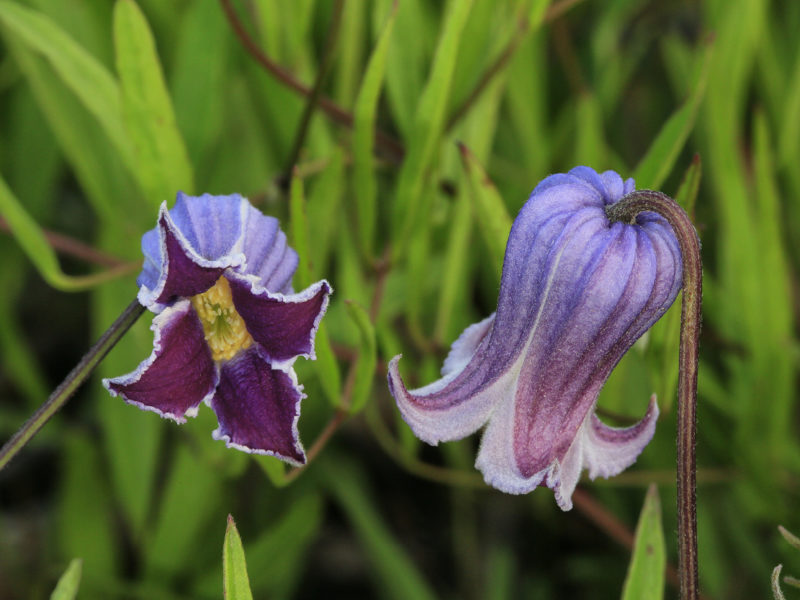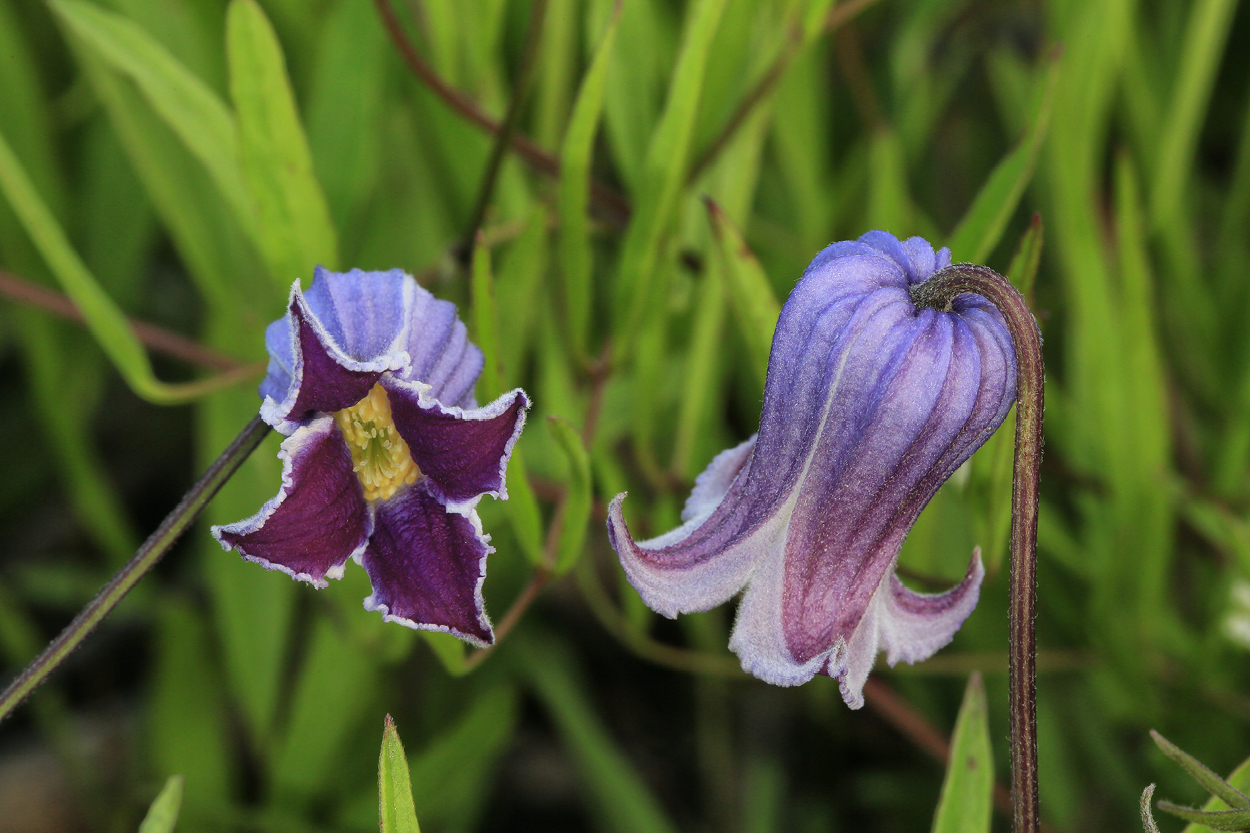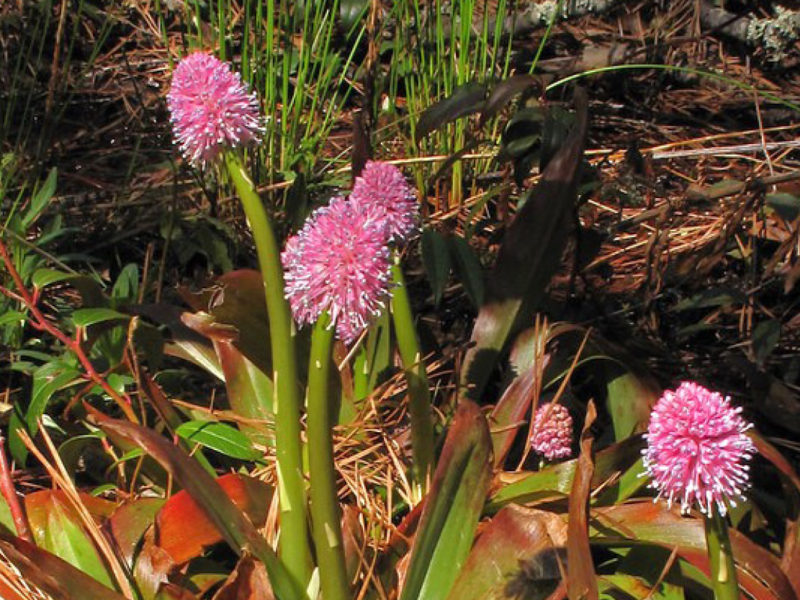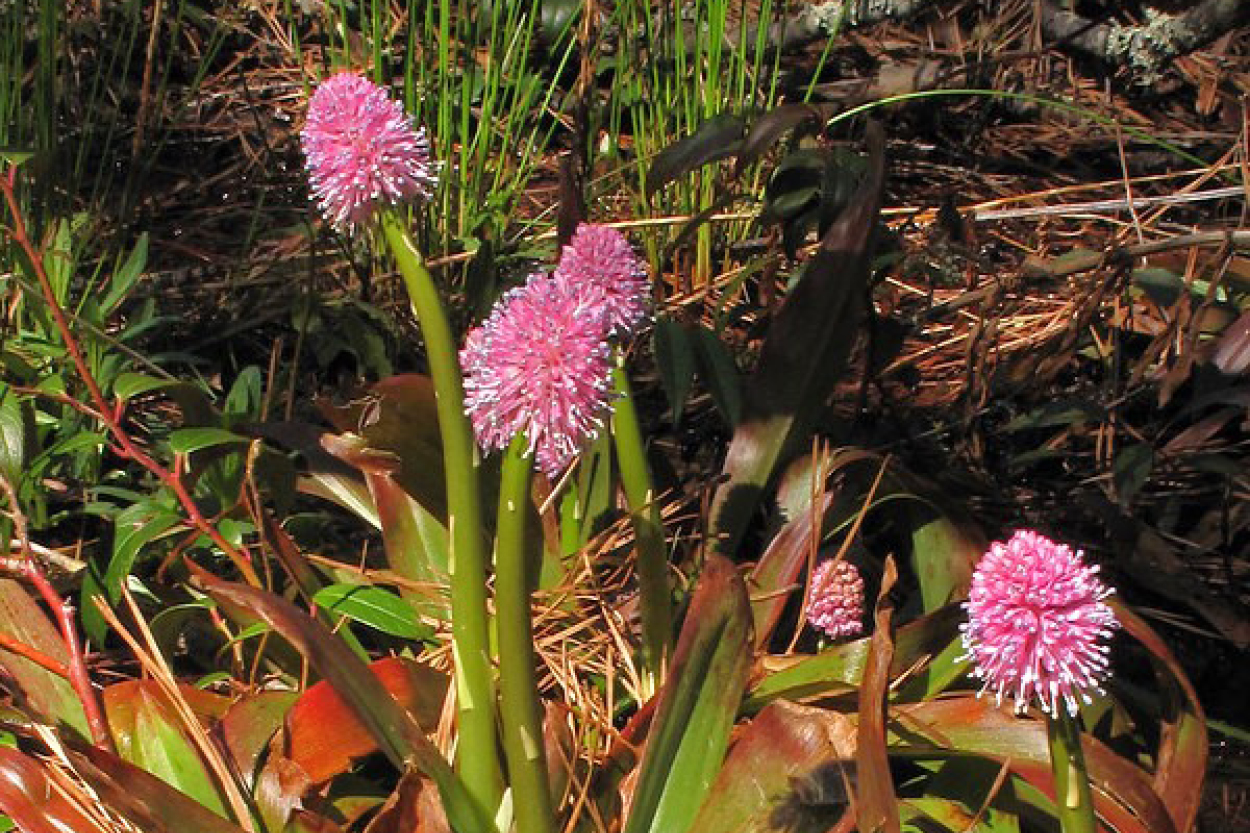Nurturing Connections and Sustainability
Cultivating CNC's Community through Horticulture
Jacqueline McRae, Horticulture Manager | Helen Brose, Marketing Specialist
Chattahoochee Nature Center’s Horticulture Department exemplifies unwavering commitment to the safeguarding and sustainability of the Chattahoochee River Watershed. We showcase our initiatives such as the Horticulture Symposium, seasonal native plant sales, active involvement in conservation projects, and a steadfast commitment to fostering a healthy community through substantial food donations from the Unity Garden to organizations like North Fulton Community Charities.
This holistic approach underscores CNC’s integral role in environmental stewardship and community engagement. Below, you will see snapshots of some incredible results from programs and projects spearheaded by CNC’s Horticulture Department.
Go Wild with Your Gardening: A Horticulture Symposium
Since its inception in 2022, each year, close to 150 gardeners travel to CNC from all over Greater Atlanta to be inspired by and learn about why and how to garden in a more wildlife-friendly manner from published authors, community educators, and professors at CNC’s Horticulture Symposium.
While the 2024 symposium is full, there are plenty of opportunities to go wild with your gardening at upcoming native plant sales!
Spring and Fall Native Plant Sales

CNC is proud to host two major native plant sales in spring and fall. Over the course of 2023, CNC sold more than 250 different varieties of plants native to Georgia, helping to make sure there are more plants that are beneficial to our local ecosystems growing in hundreds of private gardens and community greenspaces.
Why buy native plants? They significantly impact the environment and help sustain a healthy ecosystem while promoting biodiversity. According to CNC’s Horticulture Manager Jacqueline McRae, “Plants native to Georgia, meaning plants that our Georgia birds and wildlife depend upon, belong in our Georgia gardens because they provide sources of food, shelter, and places to rear young at the exact times that the natural world needs these things most.” She adds that “When you grow native plants, even on a small scale in a container garden, you are going to make a positive difference for the nature in your yard. It feels really good to watch pollinators visiting the plants you’re growing in summer or to see a chipmunk gather fallen seeds or nuts in fall.”
Great Southeast Pollinator Census
Together with 45 CNC visitors, we counted 1,892 pollinators landing on native plants in the Butterfly Garden during the Great Southeast Pollinator Census, including bees, butterflies, wasps, and small flies! According to GSEPC Project Coordinator Becky Griffin, the goals are to create sustainable habitats for pollinators that provide food, shelter, and protection, to increase the entomological literacy within the community, and to track trends that allow researchers to see how pollinator populations are being affected.
Campus Grounds Projects
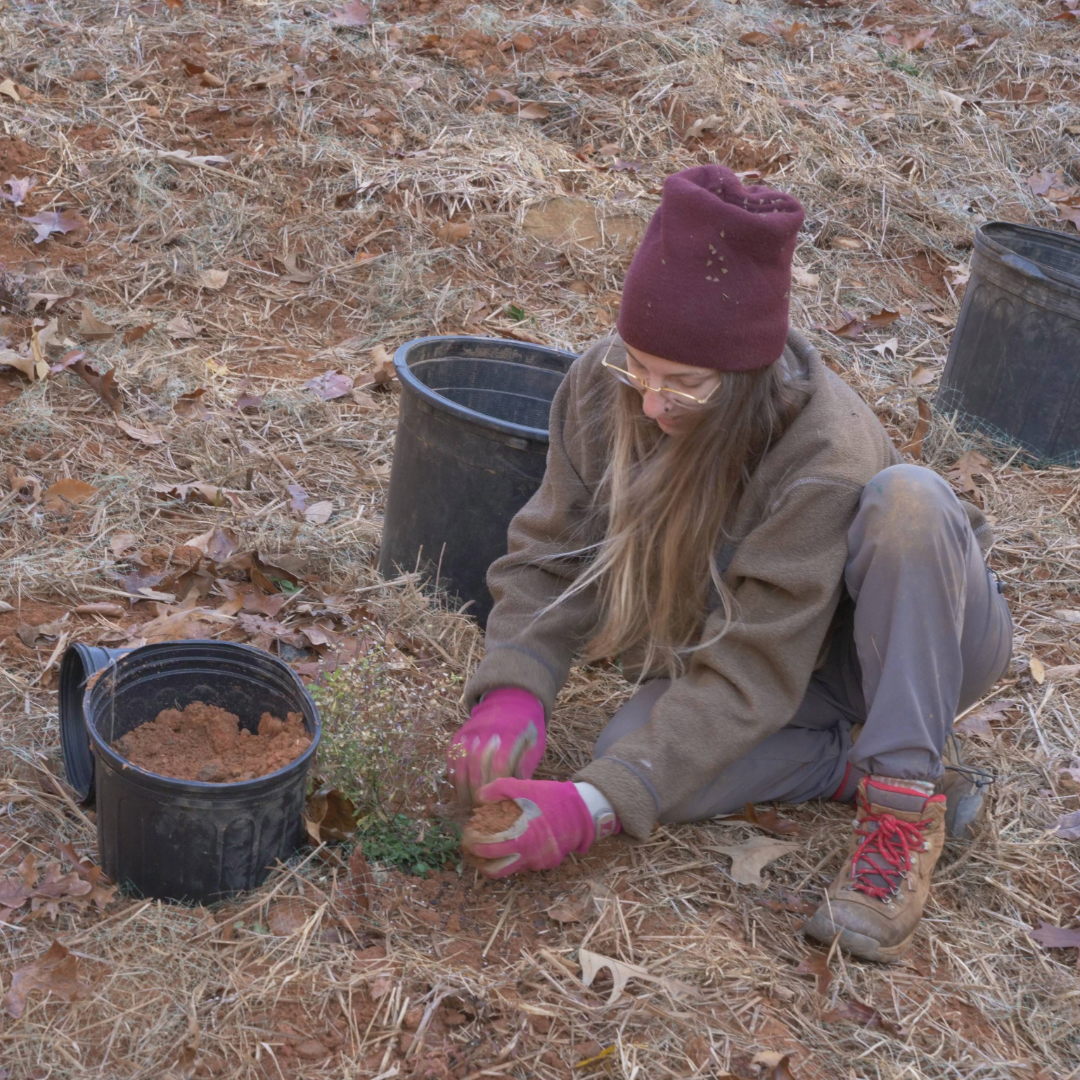
If you have been to CNC’s campus in the last several months, you may have noticed the powerline replacement on the hill above Beaver Pond. Prior to the start of the project, the Horticulture Department rescued native plants that would have otherwise been bulldozed and is now working hard to replant the area to maintain a healthy ecosystem.
Have you ever heard of a wattle? In addition to creating a beautiful natural barrier, the wattles CNC has created out of fallen limbs and branches around the grounds provide additional shelter for local wildlife and inspire us to keep dead wood on our properties, giving our local insects a safe place to overwinter. Read more about the benefits of wattles here.
Conservation Projects & Grants
Within CNC’s 3 acres of native plant gardens, the Horticulture Department has incorporated endangered and protected Georgia native plants to ensure their success in a safe environment and to be viewed by CNC visitors. They have also added 50 botanical plant signs to educate on the ecological benefits of favorite blooming plants.
According to Conservation Horticulturist Henning von Schmeling, CNC received a grant funneled through the Georgia Department of Natural Resources to work with five federally endangered plant species from Northwest Georgia, including the Alabama Leather Flower (Clematis socialis), Morefield’s Leather Flower, (Clematis morefieldii), Virginia Spiraea, (Spiraea virginiana), Mohr’s Barbara’s buttons (Marshallia mohrii), and Tennessee Yellow Eyed Grass (Xyris tennesseensis).
CNC is working in tandem with the State Botanical Garden and Atlanta Botanical Garden on the same grant with each institution collecting other plants that are federally endangered. After this five-year project ends, CNC will receive a set of all extra and propagated plants from the State Botanical Garden and Atlanta Botanical Garden, and they will receive a set from CNC in return. This ensures that there are three different organizations that safeguard these rare plants in their conservation collections.

Volunteer Impact
Our Fearless Grounds Volunteers, who show up rain or shine each week, have uncovered many mature native plant treasures such as Kalmia latifolia, Mountain Laurel, by removing unwanted invasive plants and aggressive brambles and vines.
In the Unity Garden, corporate, civic, and school group volunteers have invested close to 3,000 hours of service to produce over 9,500 pounds of more than 100 different varieties of produce. All produce is donated to the North Fulton Community Charities Food Pantry!

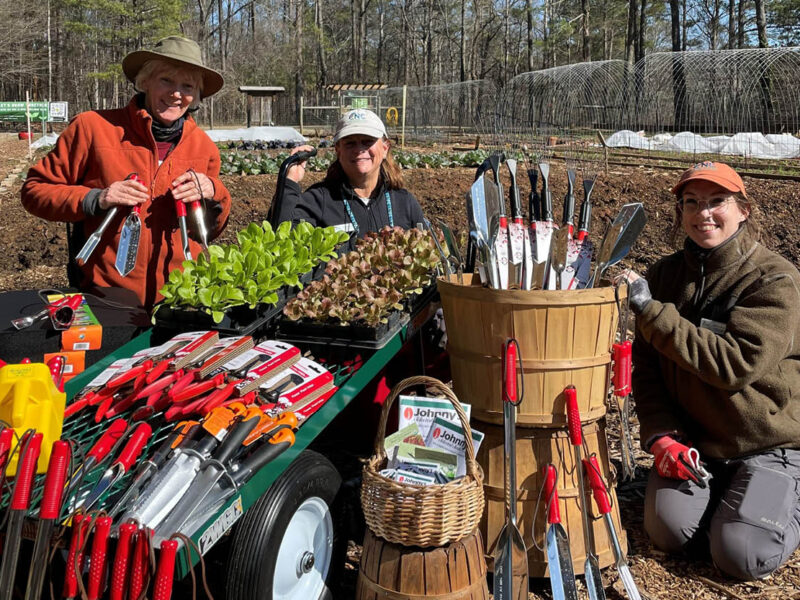
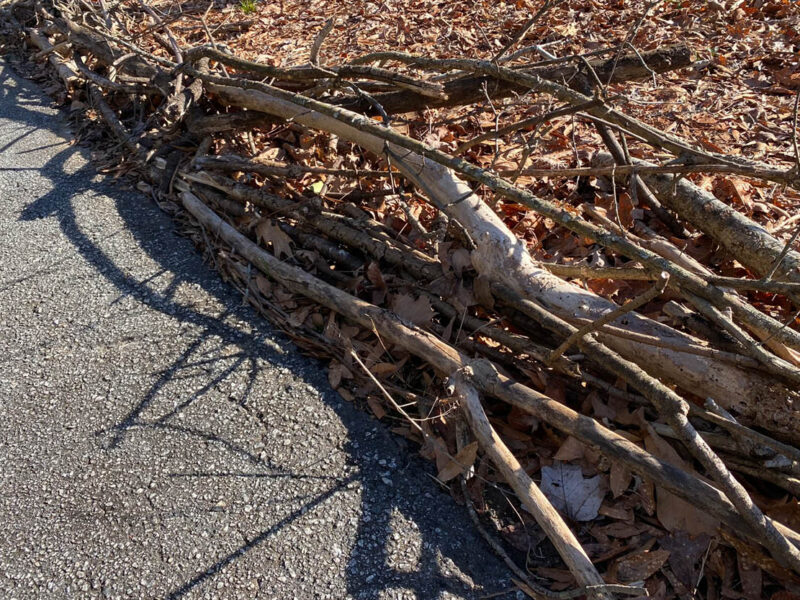
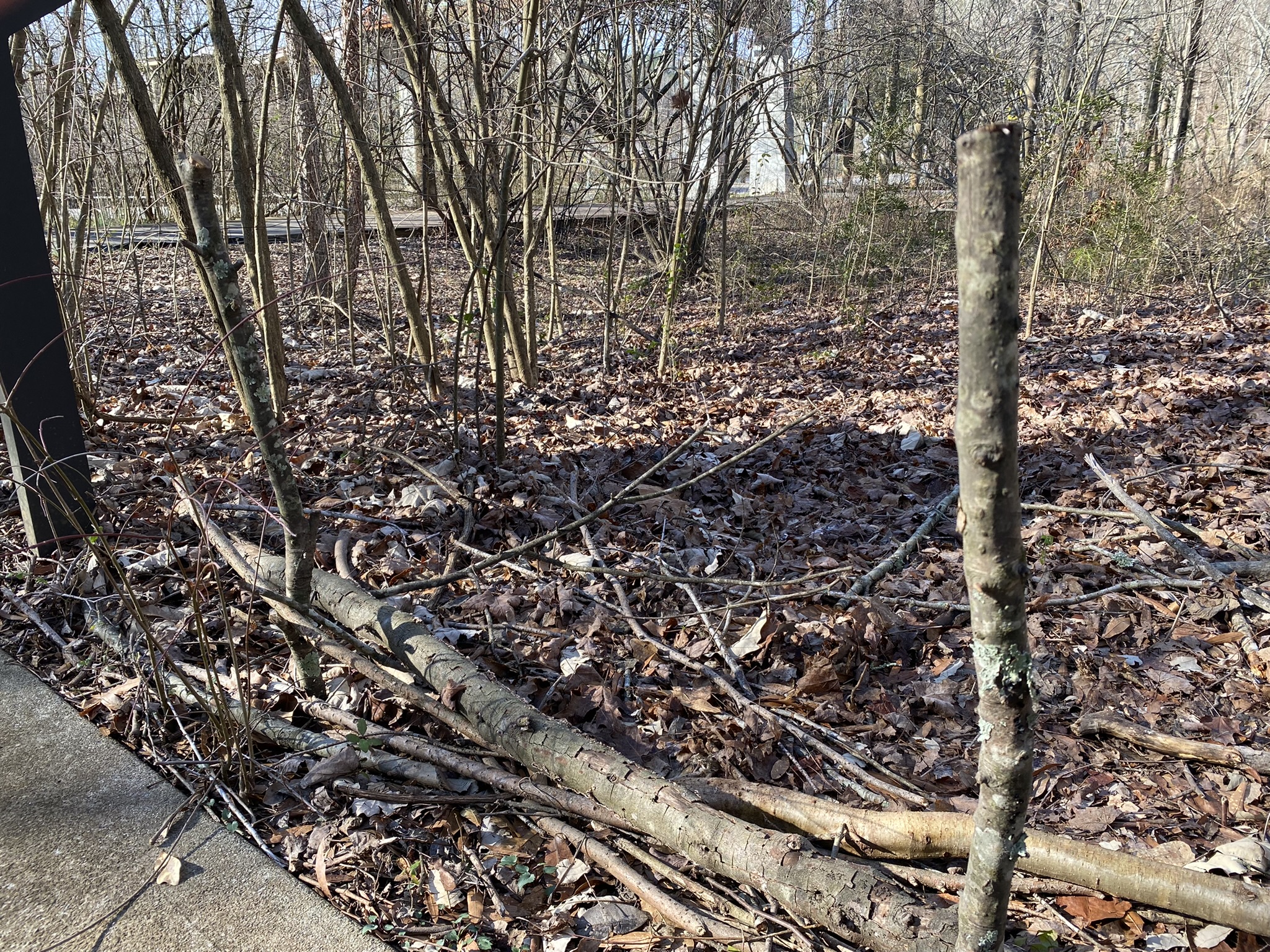
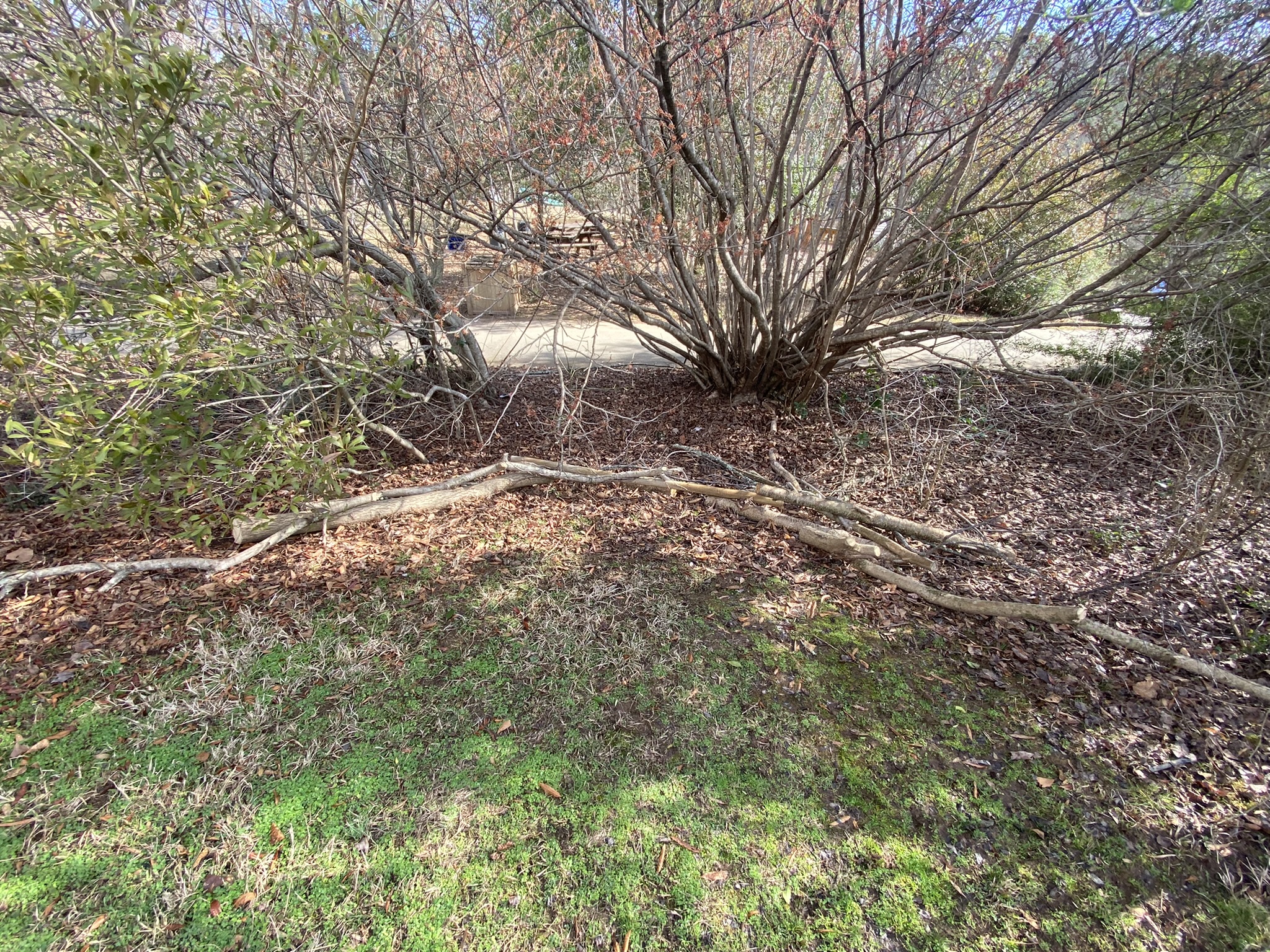
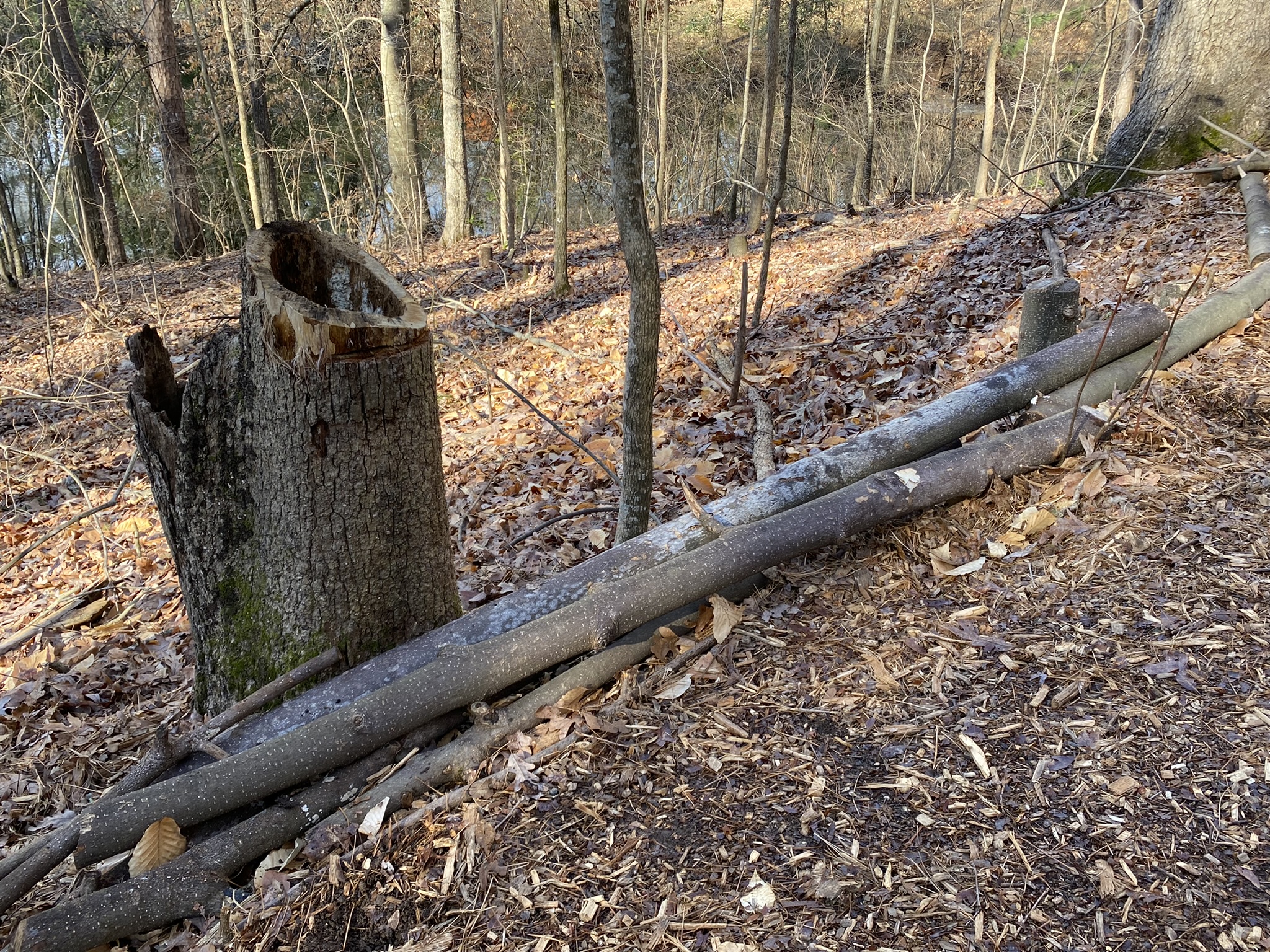
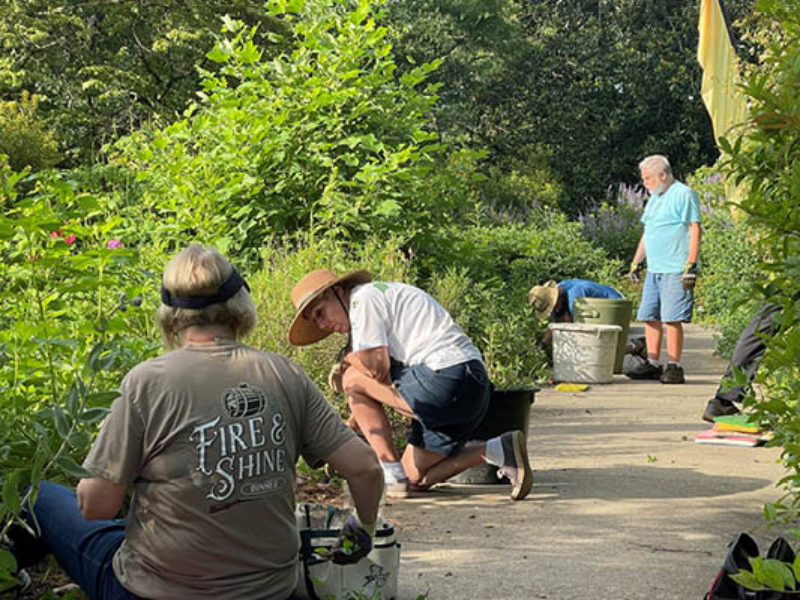
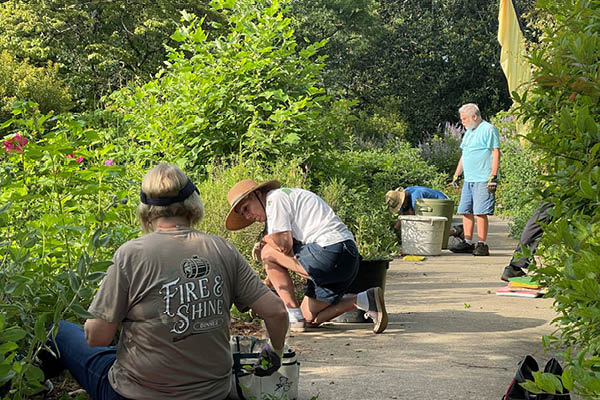
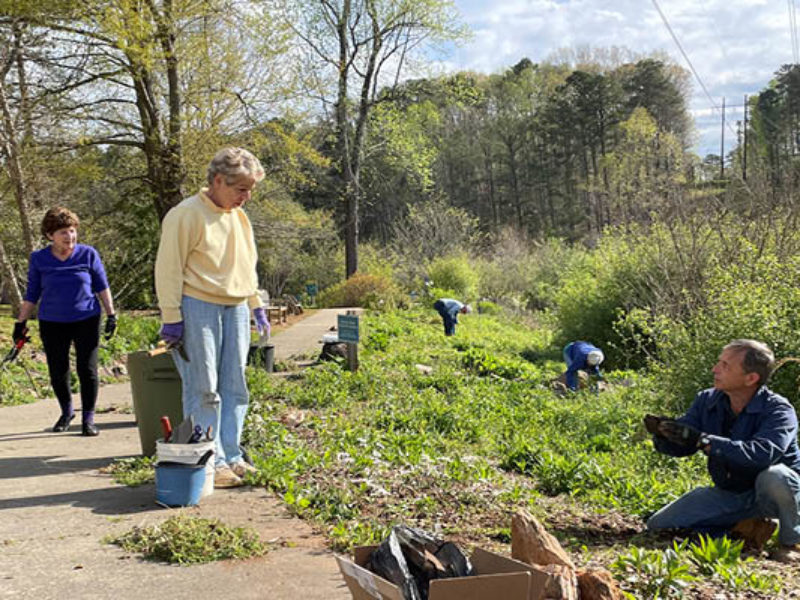
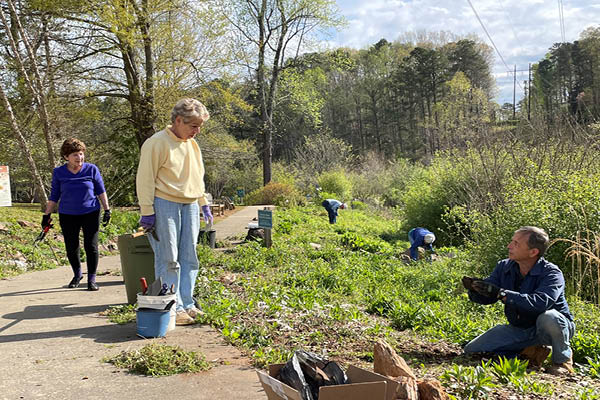
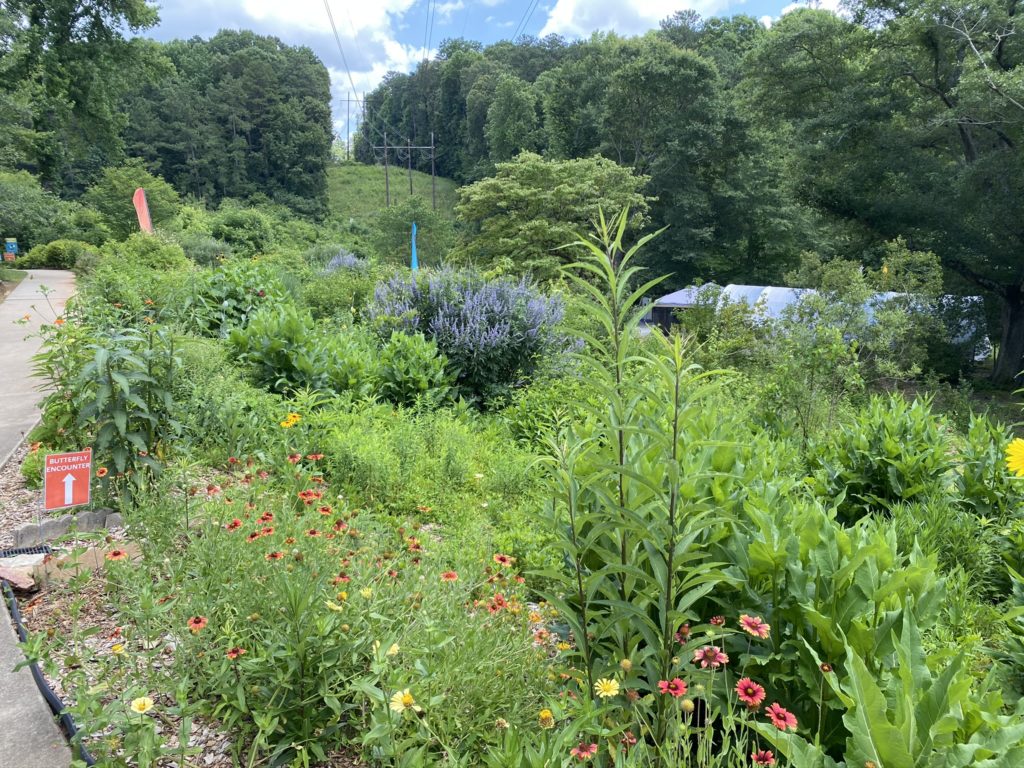
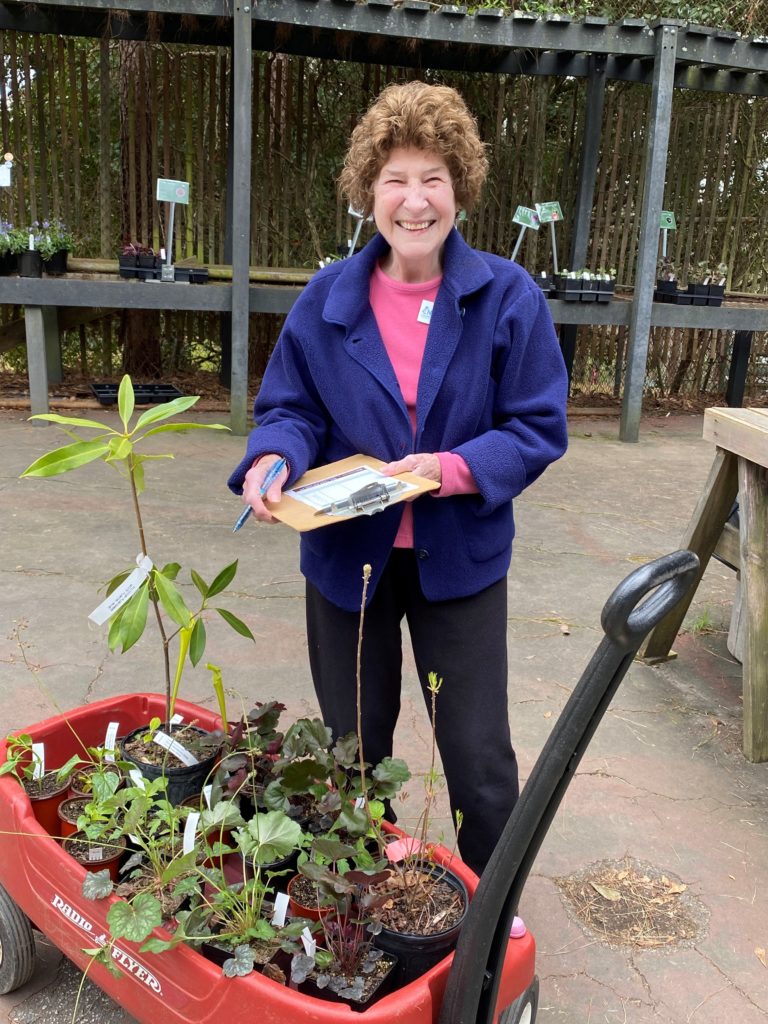
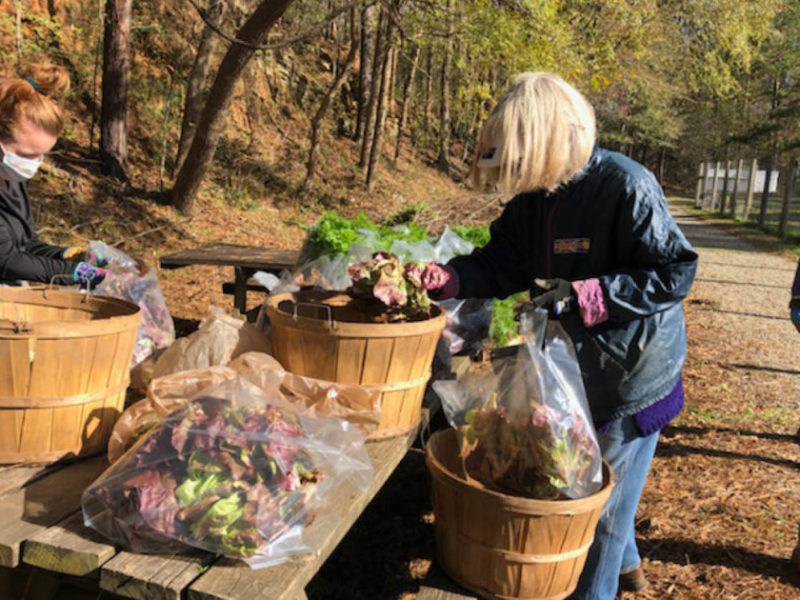
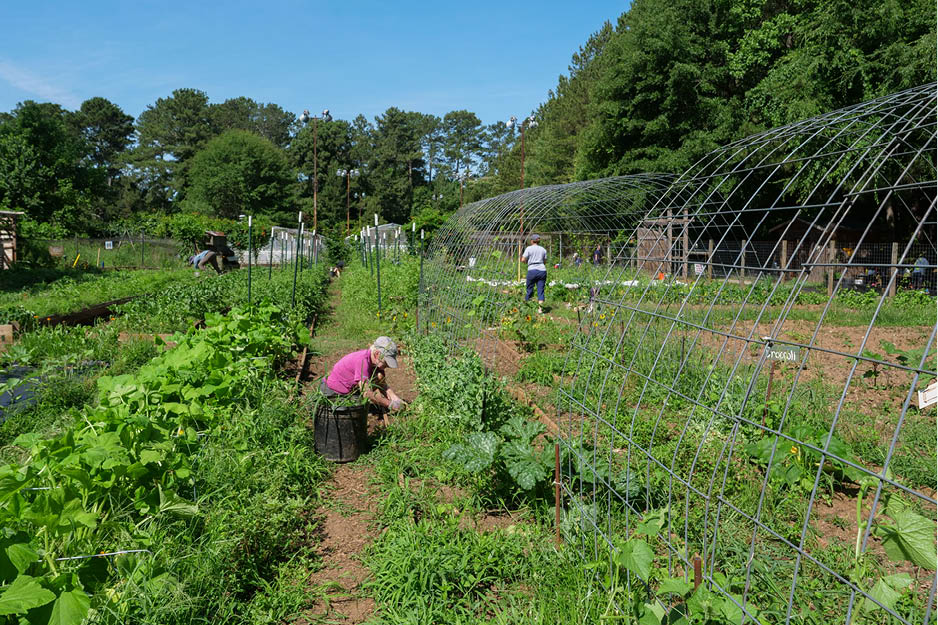 Big smiles as a longtime volunteer exclaimed “I just harvested my first ever cabbages!”.
Big smiles as a longtime volunteer exclaimed “I just harvested my first ever cabbages!”.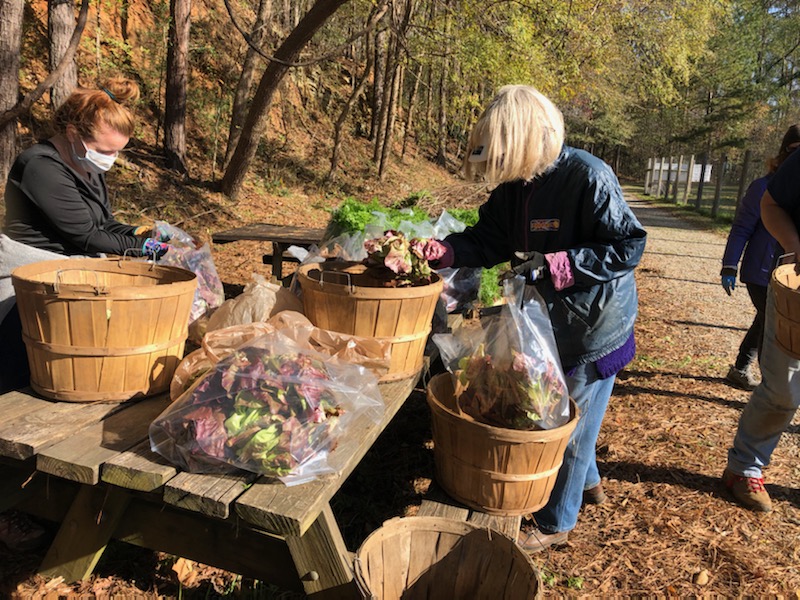 One volunteer who was a former teacher shared that it is rewarding to see the visiting children get excited about the vegetable garden and to see their faces when they learn where the food is going. Opportunity abounds for learning and teaching as well as for getting dirt under your fingernails, which may not be possible at home.
One volunteer who was a former teacher shared that it is rewarding to see the visiting children get excited about the vegetable garden and to see their faces when they learn where the food is going. Opportunity abounds for learning and teaching as well as for getting dirt under your fingernails, which may not be possible at home.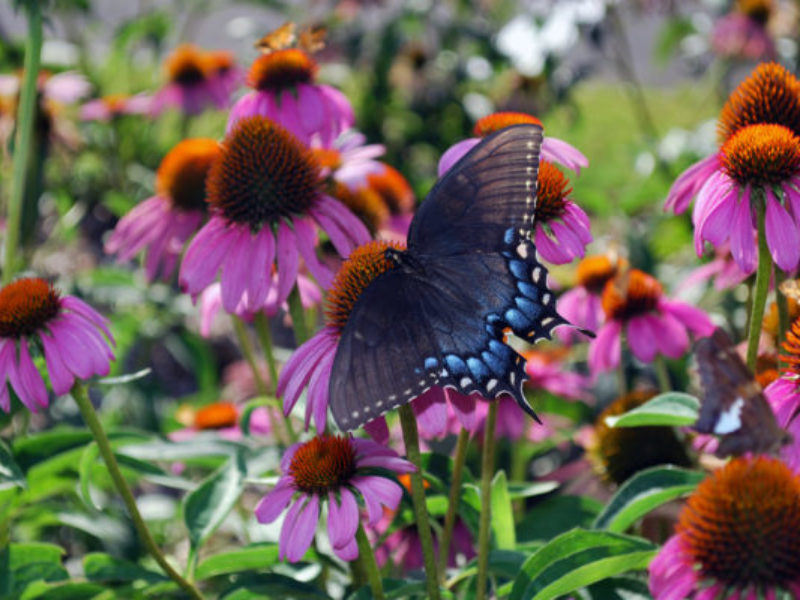
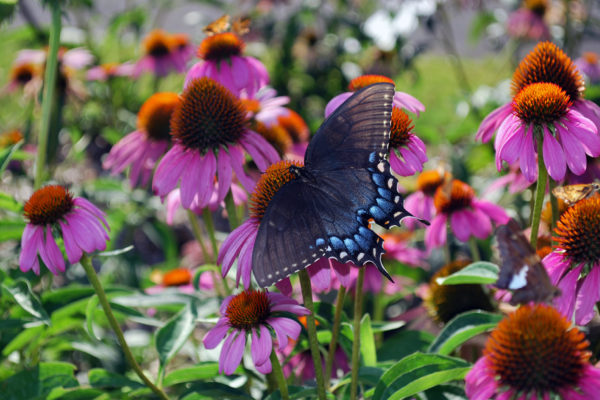
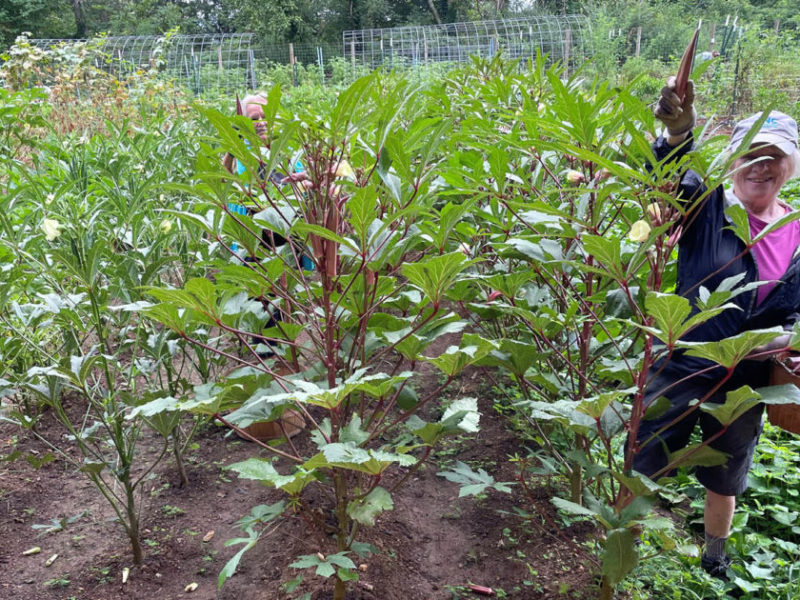
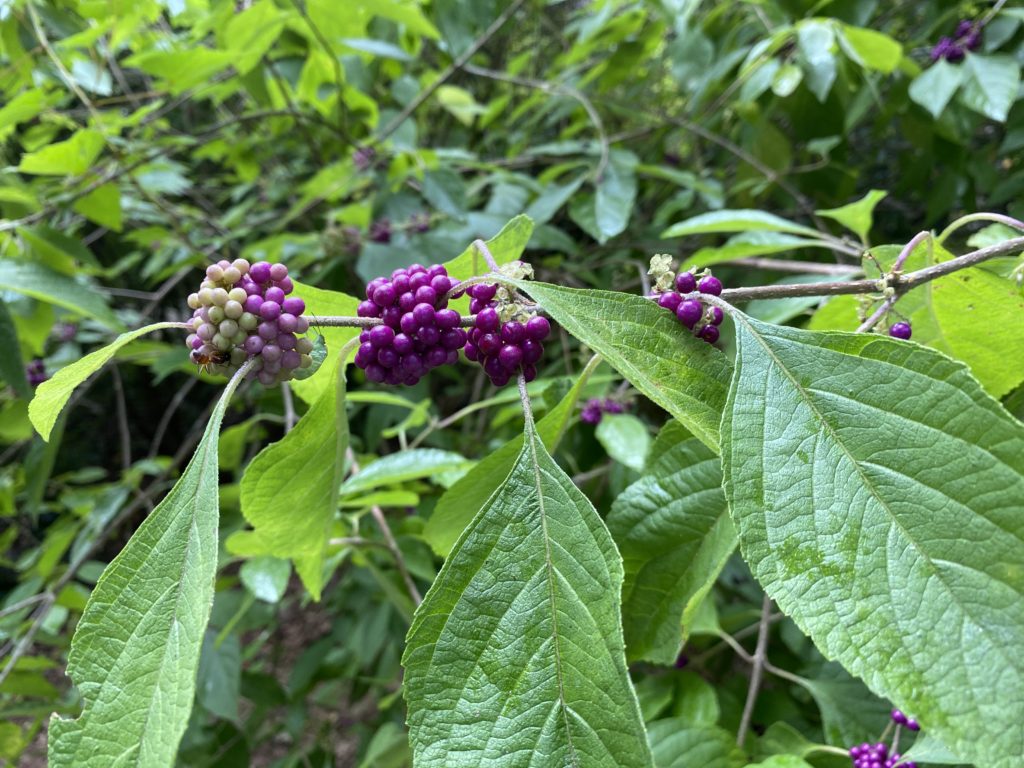 Berries of all colors are in abundance creating a visual display for us to enjoy and of course, providing much-needed food for hungry birds and small mammals stocking up for winter.
Berries of all colors are in abundance creating a visual display for us to enjoy and of course, providing much-needed food for hungry birds and small mammals stocking up for winter. 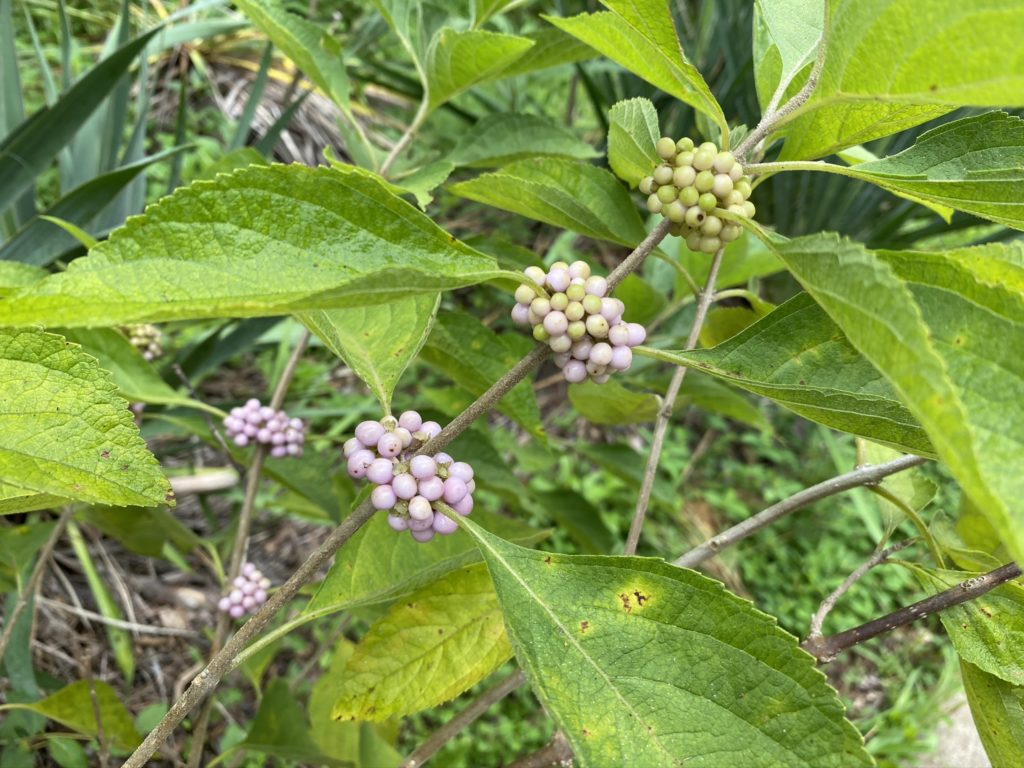
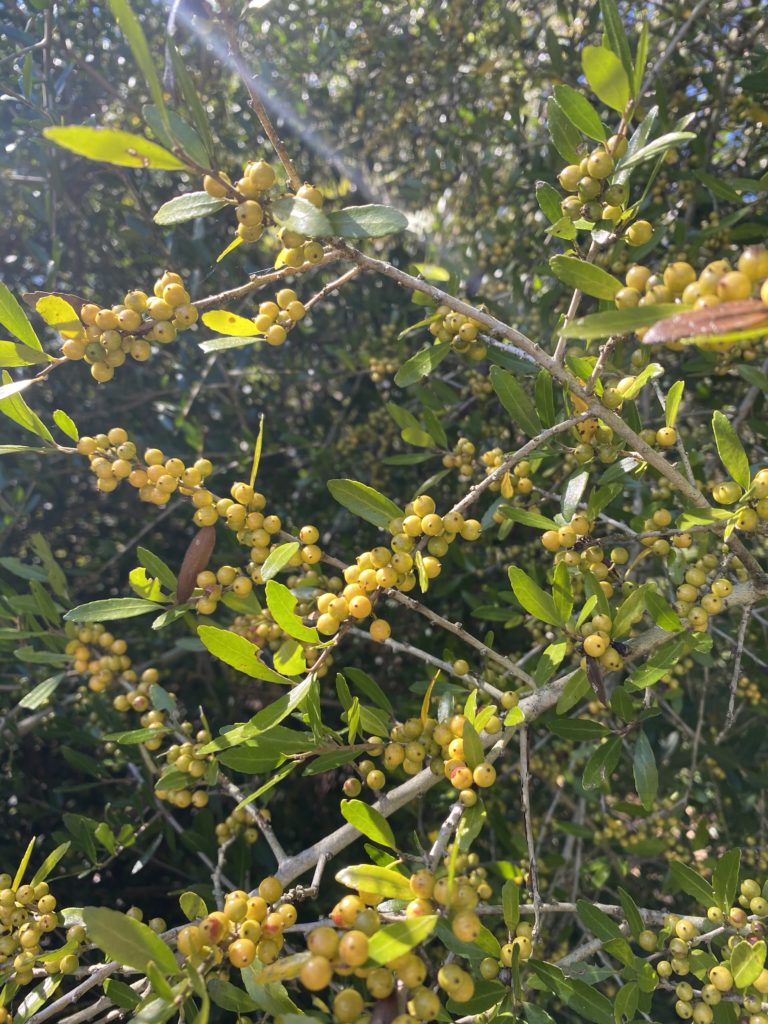
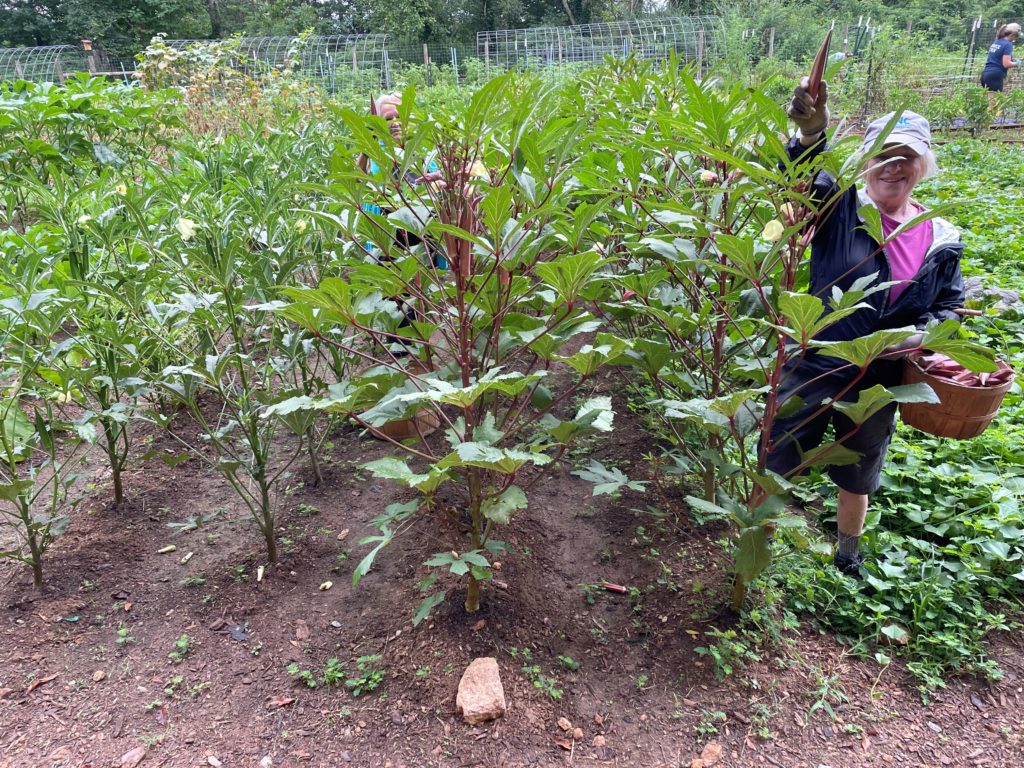 Up in the Unity Garden okra is surely the star of the show – these amazing plants, both red and green varieties, have been producing since early June! Okra grows really fast, has really pretty flowers, and grows really, really tall! Tasty even when raw, the 2021 okra has truly been the gift that keeps on giving. It is ready to harvest within 4 or 5 days from when the plant flowered and we have to harvest frequently. Often beautiful when large the okra does become tough and are no longer tasty.
Up in the Unity Garden okra is surely the star of the show – these amazing plants, both red and green varieties, have been producing since early June! Okra grows really fast, has really pretty flowers, and grows really, really tall! Tasty even when raw, the 2021 okra has truly been the gift that keeps on giving. It is ready to harvest within 4 or 5 days from when the plant flowered and we have to harvest frequently. Often beautiful when large the okra does become tough and are no longer tasty. Mark your calendar for the next Horticulture event on November 18. Cassandra Quave will bring to life her newly released and adventure-filled memoir The Plant Hunter. Born and raised in Florida and now head of the Emory Herbarium in Atlanta, Cassandra is a leading medical ethnobotanist, who has captured her challenges and triumphs in this uplifting memoir. Her team even hunted here at the nature center!
Mark your calendar for the next Horticulture event on November 18. Cassandra Quave will bring to life her newly released and adventure-filled memoir The Plant Hunter. Born and raised in Florida and now head of the Emory Herbarium in Atlanta, Cassandra is a leading medical ethnobotanist, who has captured her challenges and triumphs in this uplifting memoir. Her team even hunted here at the nature center! 